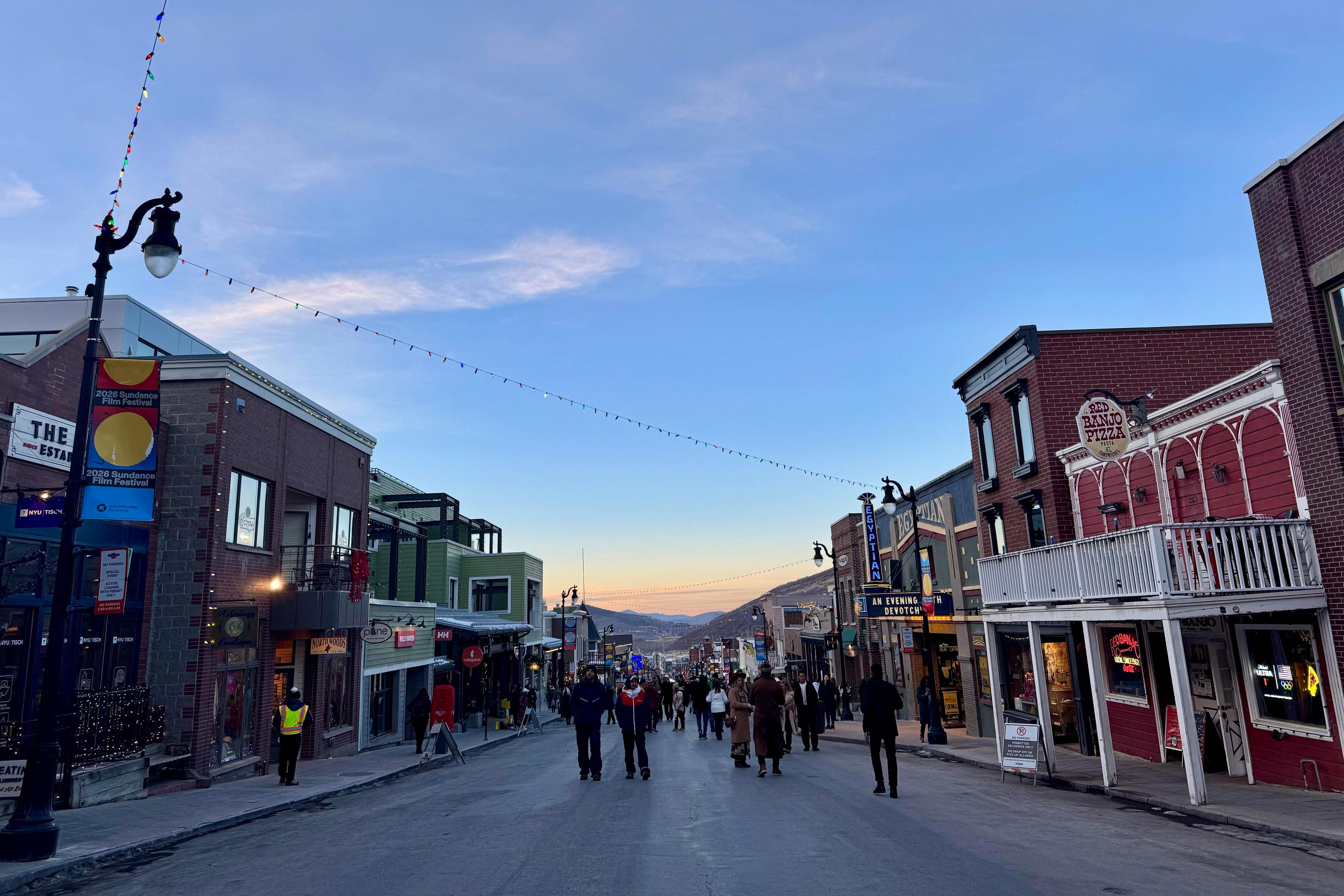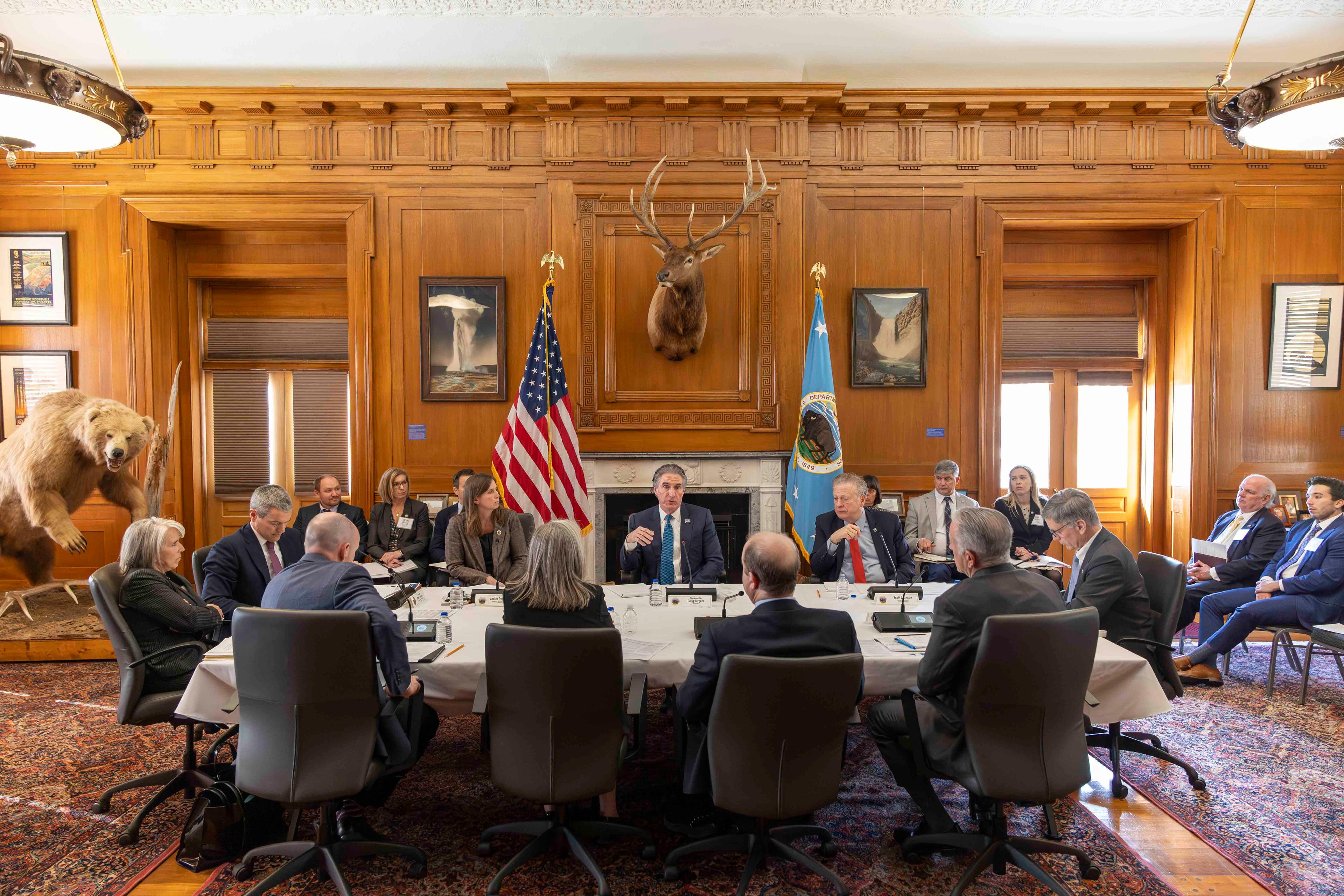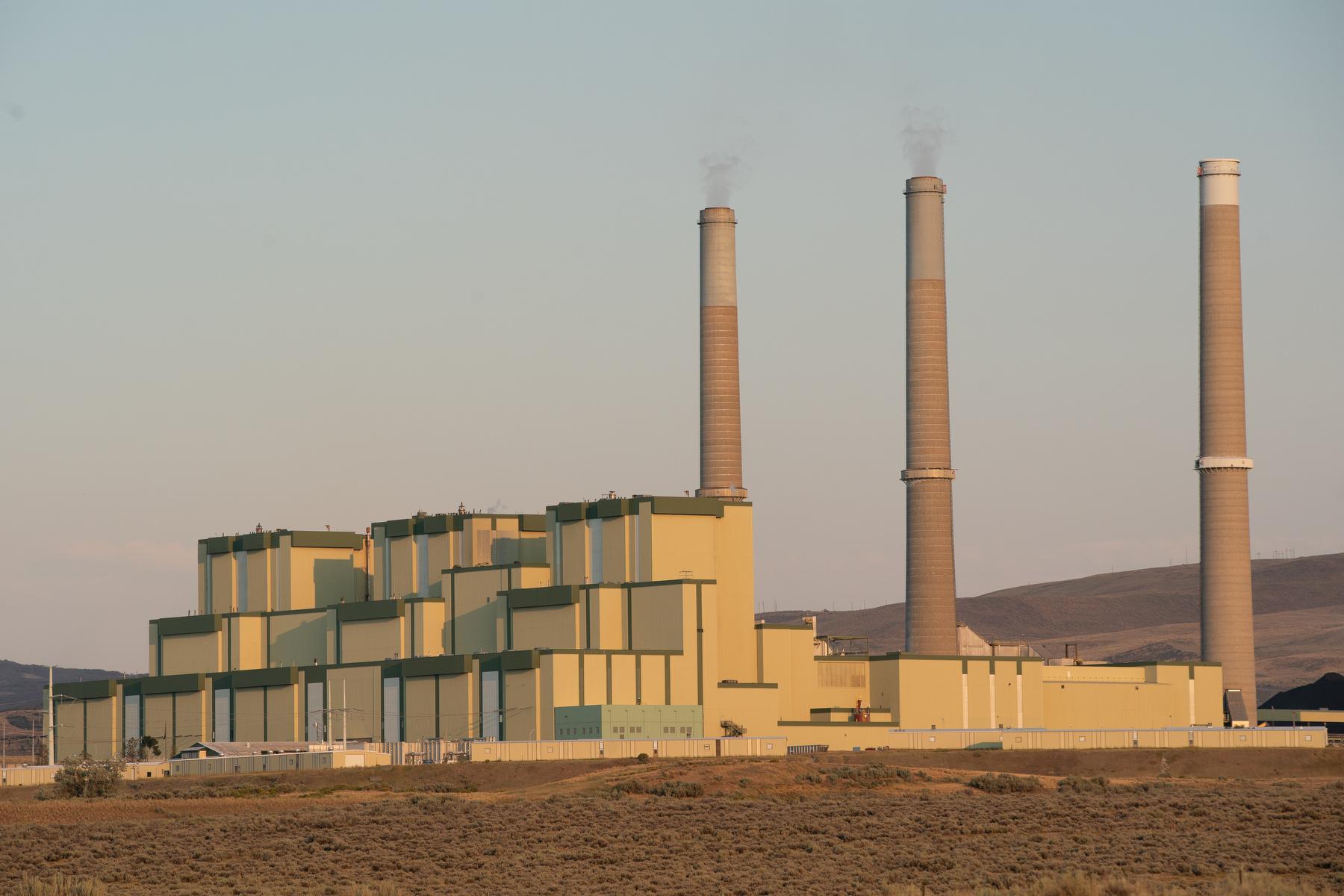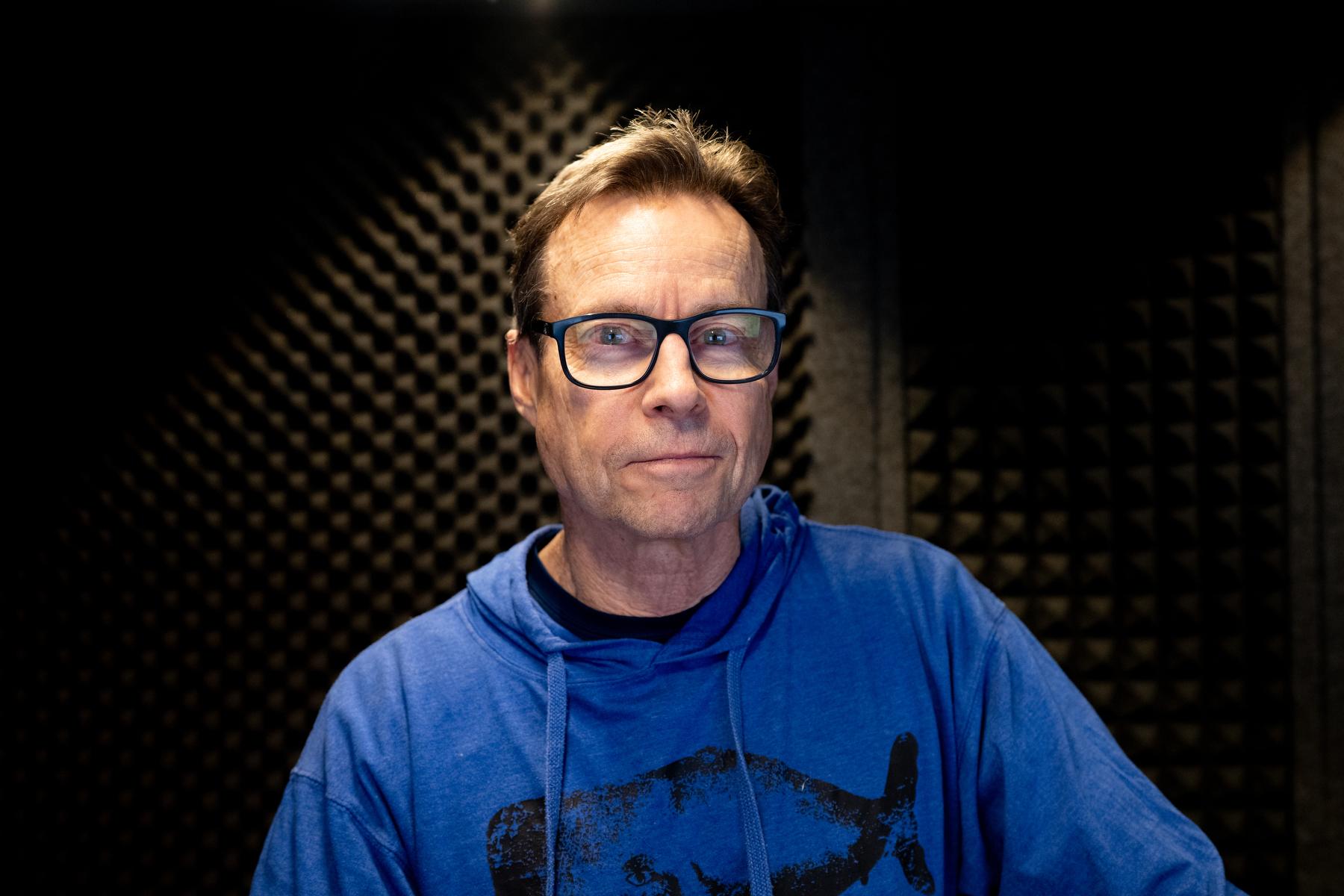
The nice thing about waking up with CPR Morning Edition Host Mike Lamp is that you don’t have to make him eggs or fix him coffee. You just have to listen as he calmly, respectfully delivers the news, weather, and maybe a few words of encouragement. According to the most recent Nielsen ratings, 107,000 people hear Lamp each week.
After more than four decades in broadcasting, public and commercial, he will retire Friday, Sept. 12, which happens to be his 64th birthday.
Lamp came to Colorado Public Radio in 2000 after a varied radio and television career in Flagstaff and Phoenix, Arizona.
He reflected on the early-morning shift, the highs and lows of the news business, and his life off-air with longtime colleague Ryan Warner of Colorado Matters.
This interview has been edited for length and clarity.
Ryan Warner: Early in your career, you worked midnight to 6 a.m. at a commercial country station in Flagstaff. You have worked the morning shift for years now at Colorado Public Radio. Is there something about these shifts that appeals to you, or is this circumstance?
Mike Lamp: The original midnight to six shift at my first job in radio was kind of imposed on me. It's lonesome at that time of night at the old radio station. But I've never minded being up early. I did that in television too. It certainly has never bothered me. And to answer your question, yes, there is something that appeals to me. I like starting the day early — and knowing it can be very early in the day and you've already done something. You've already gotten something done. Maybe something went well. So whatever else happens, you know something went OK. And it's still like 6:30 a.m. or something.
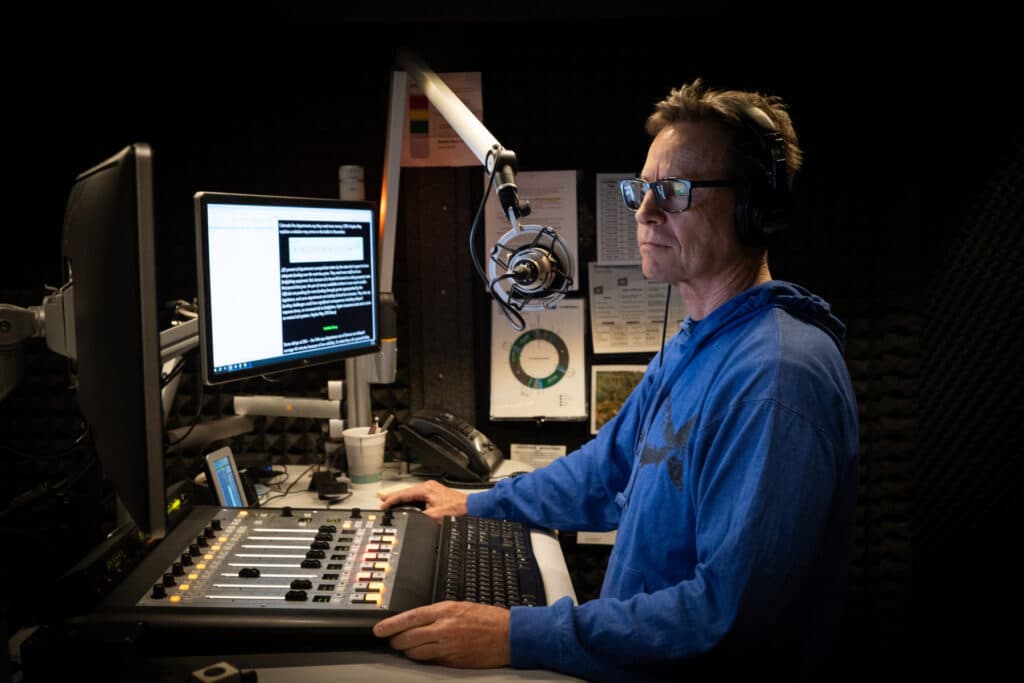
Warner: I was a Morning Edition host for a much shorter period. But I liked coming into an empty newsroom that would eventually fill — staking my claim to some extent in a quiet place. Does that speak to you?
Lamp: Oh, it's very nice to be here when nobody else is around.
Warner: That makes us sound like misanthropes.
Lamp: Sure. But yes, it's very quiet. Nobody's using the microwave.
Warner: Does the loss of federal funding have anything to do with the timing of your retirement?
Lamp: No, it's around the time that I would retire anyway. It is circumstances outside of the office that have precipitated my leaving now.
Warner: Your last day on air, September 12, is also your 64th birthday.
Lamp: That's true. That worked out. It was a nice coincidence.
Warner: Do you know who you are without this gig?
Lamp: Yes. I have enjoyed doing this, and it's been nice to be identified with this operation and to be identified with the role, but I've never felt like this is who I am. So it's very easy to know who I am without this position.
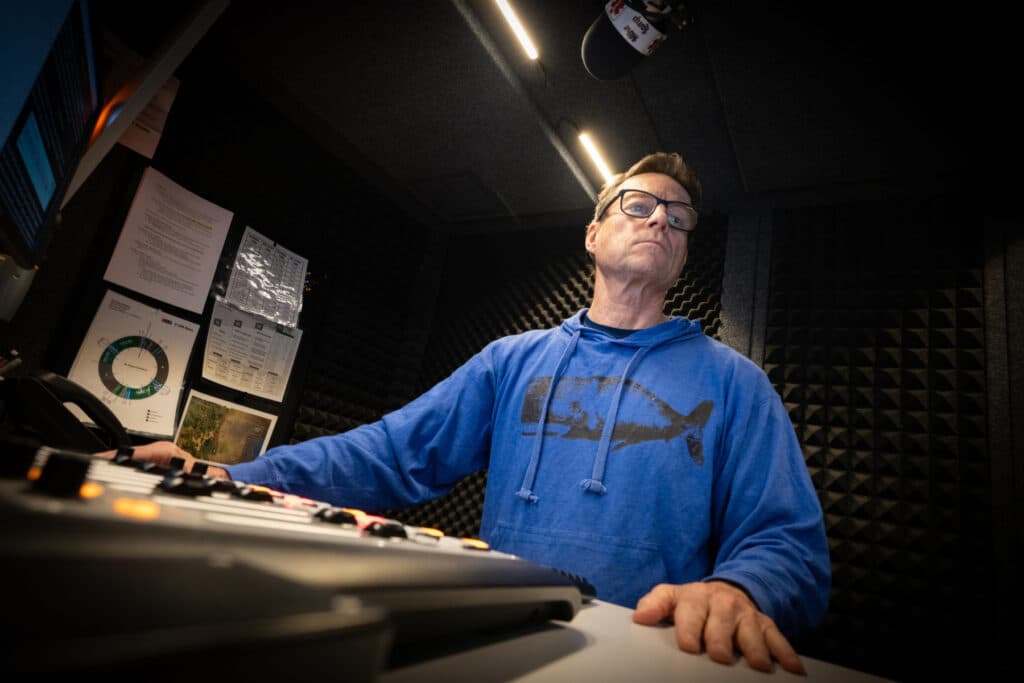
Warner: Do you wanna say one thing about Mike Lamp off air?
Lamp: He's not a lot different from the person that you hear on air, which I hope is the right way to have done it. I stay pretty quiet and stay home a lot. I think that if somebody knew me who had heard me on the radio, it wouldn't surprise them to get to know me better.
Warner: You have a high-profile job, Mike, but you've never struck me as someone who seeks the limelight. Do you think that's true?
Lamp: It is true. I spent some time in television. Very early on, I was very ambitious, and I wanted to be that guy that you saw on TV. And partly because that didn't work out, and partly because I outgrew it, I no longer feel that way. It's been a long time since I felt that way. It's been very OK with me to be just exactly as prominent or publicly known as I am. And not necessarily any more than that.
Warner: We're going to have to choose your successor. What advice do you have?
Lamp: Stick to a routine about getting up early.
Warner: Even on weekends? You don’t sleep in?
Lamp: Sure. And no. You would find out very quickly that's not a way to do it.
Warner: Is there a moment in news coverage you were especially proud to have served as a guide for?
Lamp: There have been some occasions on the air when things were really heavy. I have felt good about being someone who wasn't panicked, who was able to say how things were and not necessarily more than that. The individual occasions are kind of hard to bring up. I was on the air on 9/11. I was on the air the morning after the [Aurora theater] Batman shooting. I've been on the air for all the wildfires. You hope that you are a voice of stability and the opposite of panicking or frantic.
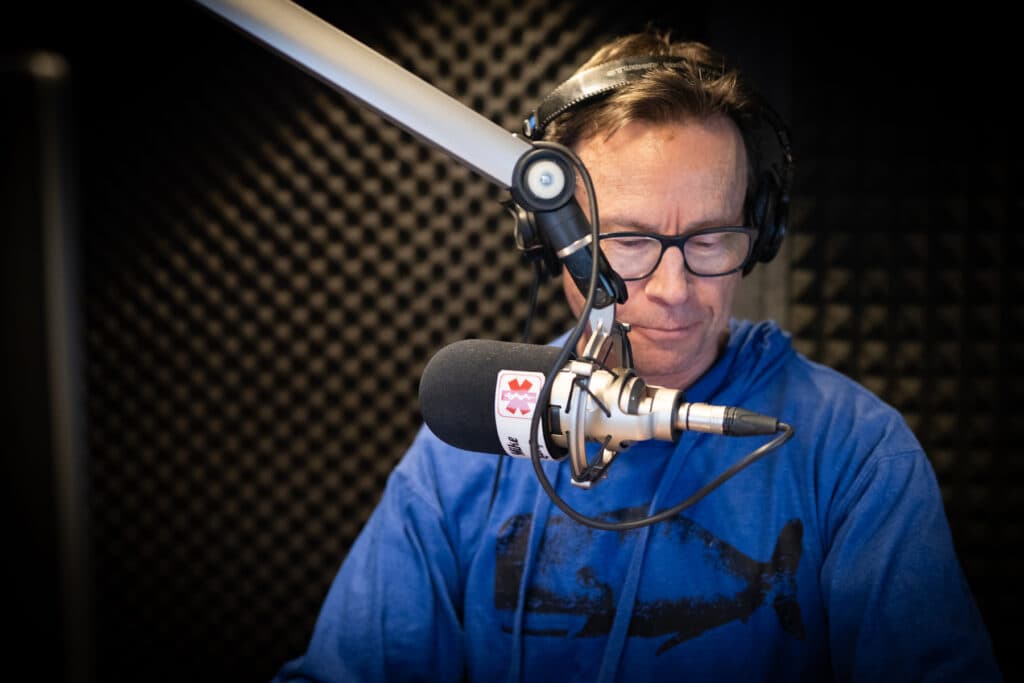
Warner: What won't you miss?
Lamp: [pause] I'll be happy to not hear as much of the daily news, honestly. That's something that I won't mind being a little bit less informed about. Because it can be a downer to have to be familiar with all what's happening.
Warner: I also think it takes a toll on your nervous system.
Lamp: Oh, I think it does. You begin the day with the attitude of “What is it this time?” And even stories that I don't necessarily have to speak to or things that I know are on Morning Edition, but are not something we are covering here in Colorado, it really kind of drags on you.
Warner: Mike Lamp, thank you so much and congratulations.
Lamp: Thank you, Ryan. It has been a great pleasure to work with you all these years.

